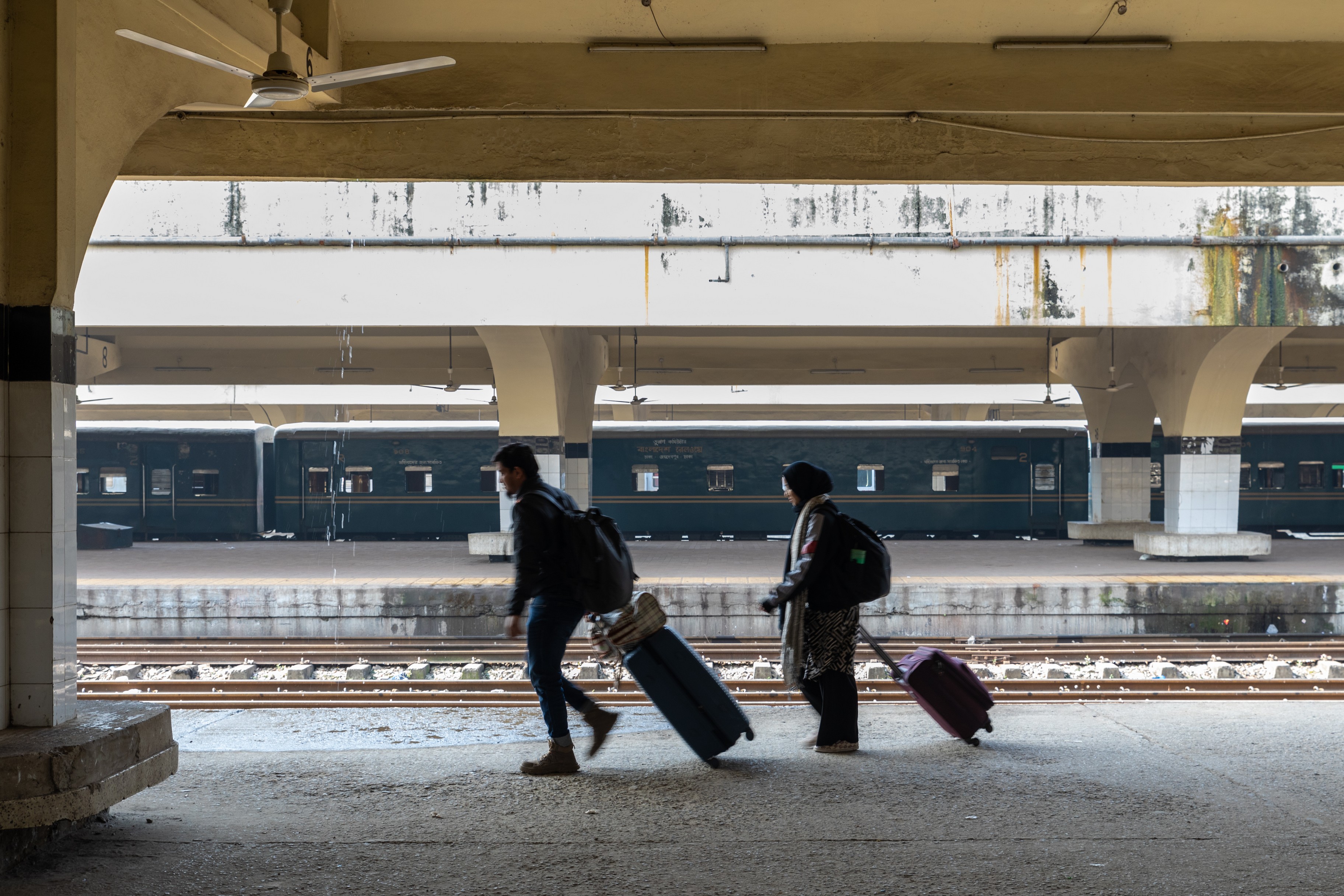The city of hardboard dreams

Dhaka never says no -- it welcomes everyone who arrives! The city may not hand you breathing space, but it will always carve out a corner for you -- sometimes generous, sometimes barely enough to call a coffin.
Step into one of the countless messes and hostels scattered across Farmgate, Mirpur, Jigatola, or Mohammadpur, and you'll see what I mean. From the outside, these apartments look ordinary -- tiled, painted, respectable enough. Inside though, Dhaka's improvisation takes over.
Two-bedroom flats, meant for families of four, are carved into human beehives. Brittle hardboards divide rooms into cubicles where thousands of students arrive each year after HSC -- like migratory birds carrying suitcases full of ambition.
If luck is on your side, your cubicle has a window. If not, congratulations -- you now live in a hardboard coffin with Wi-Fi. Bathrooms are shared by so many people that they start to feel like public utilities. Kitchens are so cramped that you can stir noodles and bump into someone ironing their shirt at the same time. Silence is extinct. Privacy is optional. Mosquito bats are your most loyal companions because it's a city where dengue seems permanent.
Yet, life blooms in these fragile corners. Shampoos vanish mysteriously. Maggi noodles become communal property. Someone is always frying eggs at 2 AM. Strangers transform into "mess brothers" or "mess sisters" -- bound not by blood but by necessity, shared ambitions, and late-night gossip.

Though their parents would faint if they saw the pigeonholes where their "future doctors" or "future engineers" sleep, Dhaka seems to shrug: this is training. Survive this, and you can survive anything.
Fahmida Ahmed Tithi, a software student, remembers her early years in one of these cubicles: "My mother cried when she first saw where I lived. I was in college. For two years, I stayed in that cardboard-surrounded room. And honestly, I learned more in those two years than anywhere else in my life. I almost befriended those woodlice who helped me stay awake at night."
Now, reading this, Fahmida's mother might shed tears again. But Dhaka's mess life is its own curriculum. You learn negotiation with landlords who charge extra for the privilege of plywood partitions. Diplomacy — with roommates who think one shower a week is enough. Resilience -- against cockroaches, bedbugs, heartbreak, and homesickness. These lessons may not appear on academic transcripts, yet they shape you far more than lectures ever could.
And Dhaka being the hub of everything, this cycle never really seems to stop. Every year, new batches arrive with dreams too big for their cubicles. Every year, apartments are sliced thinner, hardboards multiplied -- as if the city itself were expanding just to make room for the dreamers. Some move on — to better flats, better jobs, better lives. Others linger, leaving their cubicles for the next dreamer.
So yes, Dhaka overwhelms -- it tests you, it reshapes you, and sometimes, it even bruises you. But it also somehow never abandons you. It welcomes you with open arms, then nudges you into tiny, impossible spaces, yet somehow gives you the freedom to dream beyond the hardboard walls that barely contain you.
Even the flimsiest hardboard cubicles, the ones too small to call rooms, become more than shelter. They bear witness to ambitions that refuse to shrink and hope that refuses to leave, even when the electricity does. Because hey! It's Dhaka, after all!




 For all latest news, follow The Daily Star's Google News channel.
For all latest news, follow The Daily Star's Google News channel. 

Comments